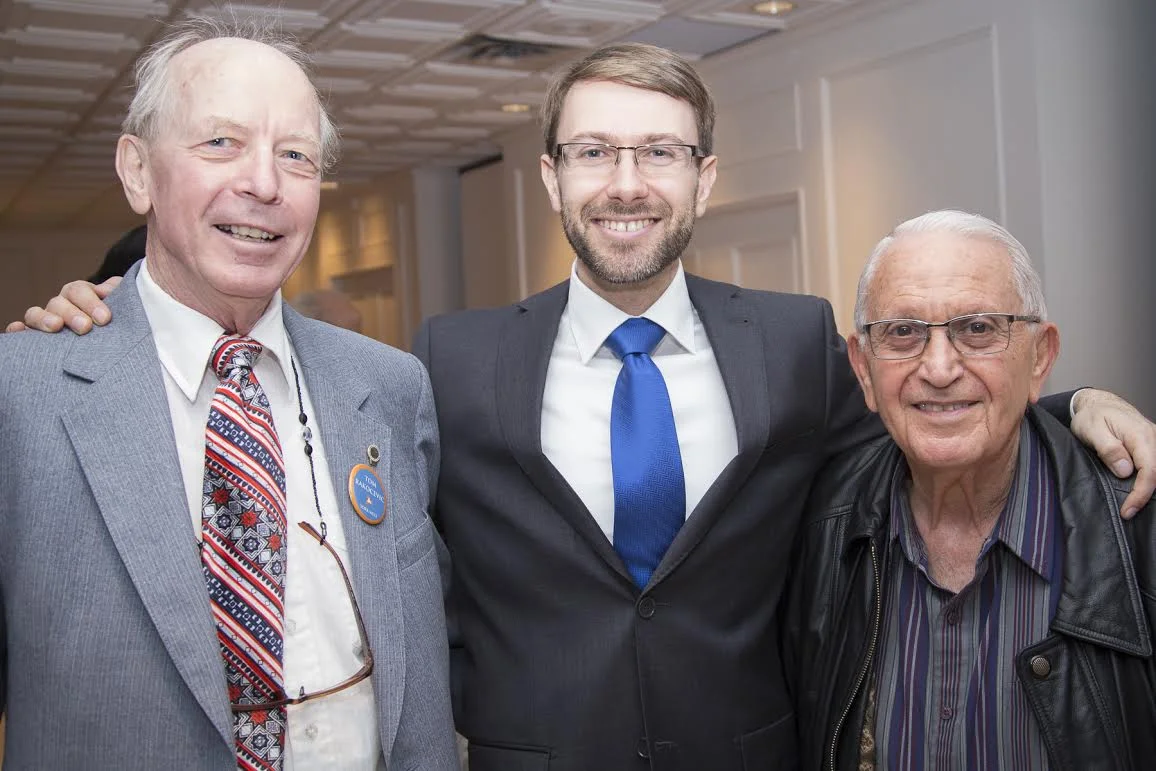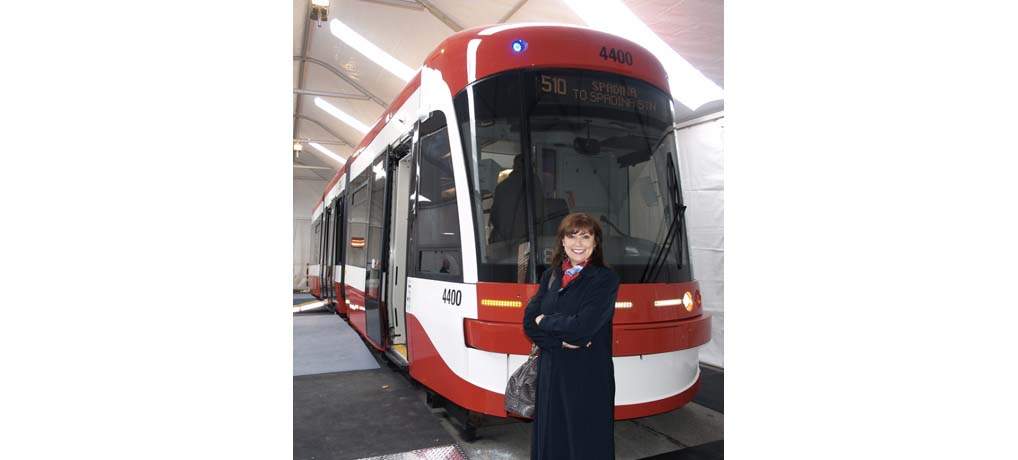By Yasmin ParodiThe Hydro Corridor, north of Finch Avenue, is a strip of grass bordering the entire City of Toronto. Recognizable by its hydro towers and power lines above ground, the corridor also pumps natural gas, electricity, and oil through the City.Beneath the grass lays the controversial Enbridge oil pipeline also known as 'Line 9. Changes to Line 9 which now were approved on Mar. 6 now include the ability to transport heavy crude, or bitumen from Alberta's tar sands.The tar sands (also called oil sands by the industry) are a large deposit of unconventional oil in the form of sand, which needs mass amounts of land, water and chemical to be refined. An estimated 82 per cent of water is drawn from the Athabasca River, which runs along many first nations communities in Northern Alberta whose lives are severely being impacted by the extraction."Canada faces a crisis when it comes to the situation of indigenous peoples," said James Anaya, the UN's special rapporteur on the right of aboriginal peoples after his visit to Canada.Transportation of this heavy crude, also known as “super hot sandpaper” by activists, provides a serious risk of creating a leak in the 37 year-old pipeline, which could have catastrophic consequences on our natural environment.Enbridge says this description of the consistency of the oil is inaccurate and reiterated that they will add drag reducing agent (DRA) to line 9 in order to avoid corrosion or friction in the line.The precedence for such a disaster was set four years ago with a pipeline the same size and make of line 9.In July 2010, Enbridge oil pipeline 6B burst causing more than 3.3 Million litres of bitumen to flow into Michigan's Kalamazoo river causing the worst inland oil spill in American history. In addition to the severe environmental damage the leak caused, it also cost Enbridge more than $1 Billion to cover the cost of the oil spill.The social, health and economic impacts of environmental disasters can not be overlooked.Stretches of the Kalamazoo River have also been closed for more than two years following and it caused severe damage to the wildlife and the ecosystem of the area.“If a leak, the size of the one that happened in Kalamazoo that leaked for 17 hours before it was stopped happened in Toronto, it would be devastating,” said Councillor Anthony Perruzza who voted in support of a motion by councillor Mike Layton at the Apr. 1 Toronto city council meeting urging the province to conduct a comprehensive and independent environmental assessment of the area surrounding line 9.The pipeline crosses the Credit, Humber and Don rivers, which lead to Lake Ontario, where our drinking water comes from. It also passes close to the G Ross Lord Reservoir, at Dufferin St., and Finch Ave. W., which contains the run off from flood waters. Any leak could put our water supply at risk of contamination.There are some fears that because the pipeline is nearly 40 years old and was not designed to carry this type of heavy crude it may be susceptible to a leak.Despite this very real risk, the National Energy Board, a federal regulation group, presided over a rushed approval process with very little public participation or consultation.There were tight qualifications for those "directly affected" who were able to comment on the proposal, which prompted the Directly Affected campaign arguing everyone is affected by an inter-provincial pipeline and therefore should be invited to participate in the process.What has scientists, activists and engineer in uproar is not just that this project is bad for the climate and the environment.(an issue which was not allowed to be on the issues discussed at the meeting). They are outraged by the Conservative governments purposeful changing of laws in order to pave the way for unchallenged fossil fuel development projects, like the tar sands.Bill C38 in 2013 removed environmental protection. Of particular concern, is that the changes mean Line 9 ( apart from being nearly 40 years old) is exempt from an environmental assessment.Federally, the government Is not taking responsibility and the Premier of Ontario, Kathleen Wynne has not stepped up. Leaving it up to the company. This is of particular concern because of what happened in Kalamazoo.Currently, line 9 carries light crude from other counties and flows in a westbound direction. What this project has approved is the shipment of Canadian diluted bitumen eastbound through our city to refineries where it will be processed into petroleum products.It approved an increase in the amount of oil being shipped per day as well as changes to a tariff in order to ship heavy crude oil which was not permitted prior.Support for oil projects are commonly connected to the idea of job creation and economic growth, and for good reason. Families have mouths to feed, and Canadians need to go about their daily lives, but the government should be leading the country forward to a variety of renewable energy opportunities and sustainable transportation systems which are good for the planet, the economy and our health.Citizens should encourage and support politicians who are prepared to do the work needed to protect us.Of course, cutting our oil use cold turkey is nearly impossible, it is a valuable resource that is being used up faster than the planet can handle. It is not an end, but a beginning.Being conscious of and acting on our use of dirty energy is not just a moral imperative, I think it's our only option.Based on the latest report of the International Panel on Climate Change, which encouraged world leaders to act immediately, which encouraged world leaders to act immediately to reduce carbon emissions, Stephen Harper's plan to expand tar sands extractions by five times, is not logically or morally responsible.It's in our best interest to not let the government put the interest of big business ahead of the safety and well-being of Canadians -- industry and government alike.We all deserve, and need better.
 “I have been honoured and extremely pleased to have had the support of the people of York West since 1995 provincially and I have to say that I have served the same people since 1978 as their local councillor,” Sergio said. “I've had a long and wonderful relationship with the people of York West and I will will work hard, harder than before to continue to serve the people of York West.”Sergio who will continue to serve as the Minister responsible for Seniors, said that he is excited to continue moving forward in this capacity. “I have already held a meeting with the Ontario seniors secretary and staff to relaunch the community grant program for seniors,” he said. “We are ready to go and we are very positive with four years of progress for the people of Ontario.”Despite falling short in this election, Rakocevic said he is undeterred and would like to run again in the next provincial election. “I received an overwhelming amount of support and I was very humbled by it,” Rakocevic said. “I will definitely be seeking the nomination to run in York West again and I will continue to volunteer my time to work in the community until the next election.” Following the election, Rakocevic has continued to work as an executive assistant to councillor Anthony Perruzza and said that he will remain visible in the community.“I'm definitely going to fight for the issues that are important to my community and I want to encourage people that their voice matters, it matters to me and that each and every one of us can create change,” he said.Karlene Nation, who ran for the Progressive Conservative party, coming in a distant third, said that while she was disappointed by the election results, she was proud of her campaign. “We gave it a good go and I'm pretty proud that I got to speak to as many residents as I did about the issues and more importantly, I'm happy that I've gotten a lot of young people involved who have helped me and helped my campaign,” Nation said. “We have our work cut out for us in York West and we're doing what we need to do to win the election next time around.”Nation, who recently left CTV news after working there for 21 years as a reporter and diversity producer to start her own media company, One Nation media, where she helps her clients to gain media exposure, said she does not plan on running again in York West. By David Ros
“I have been honoured and extremely pleased to have had the support of the people of York West since 1995 provincially and I have to say that I have served the same people since 1978 as their local councillor,” Sergio said. “I've had a long and wonderful relationship with the people of York West and I will will work hard, harder than before to continue to serve the people of York West.”Sergio who will continue to serve as the Minister responsible for Seniors, said that he is excited to continue moving forward in this capacity. “I have already held a meeting with the Ontario seniors secretary and staff to relaunch the community grant program for seniors,” he said. “We are ready to go and we are very positive with four years of progress for the people of Ontario.”Despite falling short in this election, Rakocevic said he is undeterred and would like to run again in the next provincial election. “I received an overwhelming amount of support and I was very humbled by it,” Rakocevic said. “I will definitely be seeking the nomination to run in York West again and I will continue to volunteer my time to work in the community until the next election.” Following the election, Rakocevic has continued to work as an executive assistant to councillor Anthony Perruzza and said that he will remain visible in the community.“I'm definitely going to fight for the issues that are important to my community and I want to encourage people that their voice matters, it matters to me and that each and every one of us can create change,” he said.Karlene Nation, who ran for the Progressive Conservative party, coming in a distant third, said that while she was disappointed by the election results, she was proud of her campaign. “We gave it a good go and I'm pretty proud that I got to speak to as many residents as I did about the issues and more importantly, I'm happy that I've gotten a lot of young people involved who have helped me and helped my campaign,” Nation said. “We have our work cut out for us in York West and we're doing what we need to do to win the election next time around.”Nation, who recently left CTV news after working there for 21 years as a reporter and diversity producer to start her own media company, One Nation media, where she helps her clients to gain media exposure, said she does not plan on running again in York West. By David Ros





